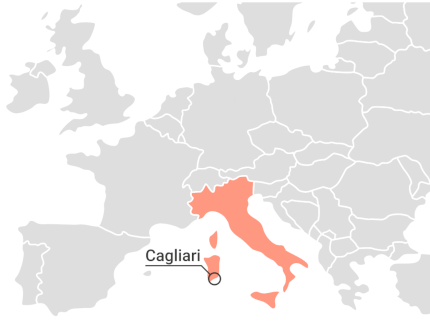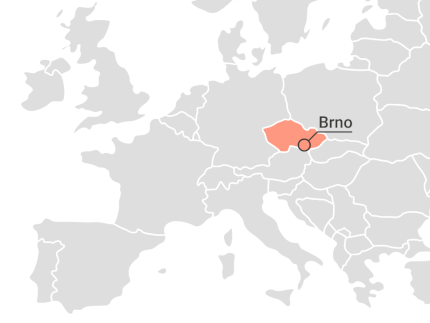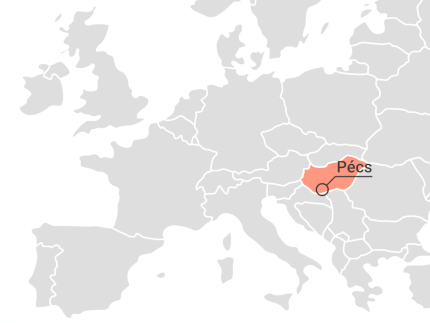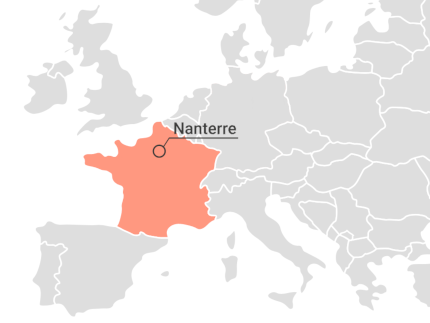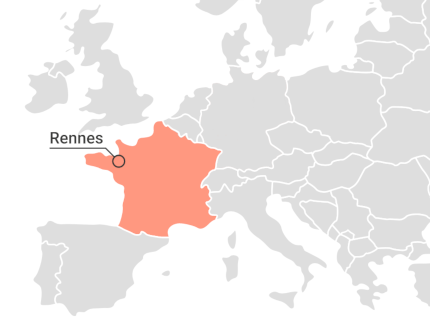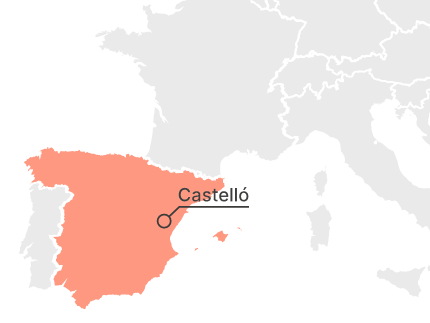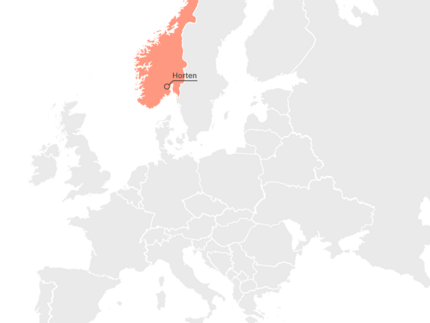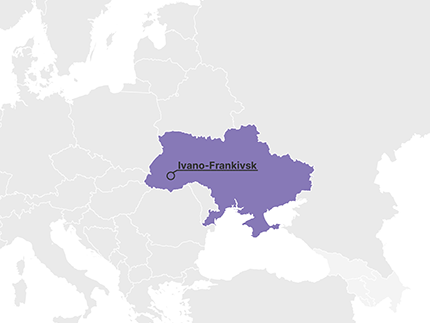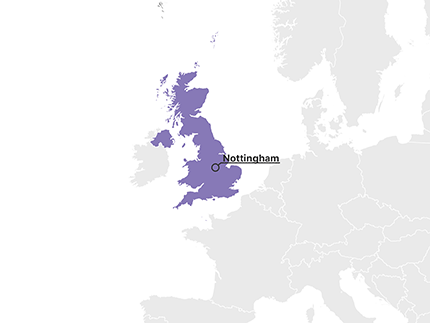Partner Universities
Which EDUC University is your perfect fit?
You're dreaming of having an international experience - but have no idea where it will lead you? Do our quiz and find out which University of the EDUC Alliance is your perfect fit!
From fjord to flamenco, from pasta to philosophy - Let's get started! Find your European alter ego!
The University of Cagliari (UNICA) was founded in 1620 by Philip III of Spain and is located in Sardinia, the second largest island in the the Mediterranean. As the largest city in Sardinia, Cagliari offers a variety of sightseeing, artistic and cultural attractions, as well as traditional Sardinian culinary specialties and festivities. The city is especially famous for the Castello district (Cagliari's old town), from which you can overlook the entire Gulf of Cagliari, also called the Gulf of Angels. The city is located directly on a 7 kilometer long white sandy beach and just a few steps away lagoons and nature reserves can be found. Among the sports offered by the university, you can learn windsurfing and sailing in the Gulf of Angels.
UNICA's more than 25,000 students are educated in a total of 6 faculties:
- Biology and Pharmacy
- Engineering and Architecture
- Medicine and Surgery
- Sciences
- Humanities
- Economics, Law and Political Sciences
Each year UNICA increases the number of courses taught in English. Likewise, the university strives to promote international mobility for students, e.g. through summer and winter schools, the Erasmus+ program, and many other offerings. In addition, double degrees at Bachelor, Master and PhD level are possible in cooperation with international universities.
Founded in 1919 in Brno, Masaryk University is the second largest university in Czechia. Students are an integral part of the Brno community, bringing along a number of festivals, cultural events, city parades, and many other events. Brno is famous for its unexpected cuisine, rich nightlife and minimalist architecture. You’ll never get bored thanks to its many theatres, concert halls and music clubs and exceptionally rich cultural and social life all year round. For those who enjoy sport, the surrounding countryside, easily reached within minutes by public transportation, offers ideal terrain for hiking and biking during much of the year and cross-country skiing in winter.
Classes are taught in a new, ultra-modern teaching and research campus in world-class laboratory facilities, classrooms and libraries as well as in historical buildings in the city centre. State-of- the-art facilities available to MU researchers and students include e.g. the most powerful nuclear magnetic resonance spectrometer in Central and Eastern Europe, a laboratory for experimental research in the humanities, a private television studio and a radio station.
Likewise, the international orientation of Masaryk University is regularly the best evaluation criterion of MU in various university rankings. Mainly due to the percentage of international students (about 20%) and alumni who have gained international experience during their studies (almost 19%). Exchange students can choose between many mobility opportunities such as summer and winter schools, as well as degree programs taught entirely in English.
The University of Pécs was founded in 1367 and is the oldest and one of the largest universities of Hungary. With Pécs you choose an affordable Study Abroad program and enjoy reasonable tuition fees, a low cost of living and inexpensive food. All while living in one of the most beautiful Central Europen cities with a rich culture dating back tot he Roman Empire. The city is proud to have the famous UNESCO World Heritage Site, the Early Christian Necropolis of Pécs (Sopianae). In 2010, Pécs was the first Hungarian city to be awarded the title of "European Capital of Culture" and in 2017 it was named City of Global Learning by the UNESCO. Pécs also has a vivid nightlife with countless bars and clubs and on the weekends, trips to Budapest or to neighbouring countries can be made for little money.
The University of Pécs has been running degree programs in English for more than 30 years and so has become one of the most internationalized universities in Hungary. The university provides students with a wide range of studies at its 10 Faculties:
- Faculty of Business and Economics
- Faculty of Cultural Scienes, Education and Regional Development
- Faculty of Engineering and Information Technology
- Faculty of Health Scienes
- Faculty of Humanities
- Faculty of Law
- Medical School
- Faculty of Music and Visual Arts
- Faculty of Pharmacy
- Faculty of Scienes
Paris Nanterre University, created as an annex to La Sorbonne University in 1964, is located in the west of Paris, next to La Défense, the largest business district in Europe.
Its 32 hectares main campus, the largest in the Paris area region, provides a unique green environment to its community. It supports more than a thousand student housing units, several food services as well as a wide variety of cultural and sports facilities: a theatre, an exhibition hall, the House of Students, a Learning Lab, a series of physical activity and relaxation facilities including an Olympic-size swimming pool, etc. More than 60 student associations also contribute to make the campus a vibrant community on a daily basis. The center of Paris is also not far away and places like the Eiffel Tower, the Louvre Museum or the Sacré-Cœur Basilica can be reached in a short time.
Paris Nanterre University covers the entire field of human and social sciences (arts and literature, social sciences, law and political science, economics and management, psychology and education) as well as mathematics, energetics and the sciences of sports and physical activities.
Several bilingual double degrees at the bachelor's and master's level have also been subsidized by the Franco-German University (FGU) for many years, the most long-standing of which are in the fields of law (with the University of Potsdam) and economics.
Université de Rennes, which finds its roots in the 15th century, is a major center for multidisciplinary research, recognized both nationally and internationally. The university is located in the capital of Brittany, and only 1.5h from Paris by train and an hour from sights such as Mont Saint-Michel or Saint-Malo.
Located on Beaulieu campus, Le Diapason, run by the Arts and Culture Department, houses a theatre with 700 seats, an exhibition space, a cafeteria, recording studios and several sports rooms. Art activities and workshops on dance, music, drawing, photography and much more are regularly held here. The university also houses remarkable scientific collections. With around 1,300,000 specimens covering a wide range of disciplines, they are among the best university collections in France. The city itself also offers a selection of cinemas, theaters and museums, as well as the Le Trans and Les Tombés de la nuit festivals.
Université de Rennes 1 has 4 main research sectors:
- Mathematics and ICT (Information and Communication Sciences & Technologies),
- Life and Health Sciences,
- Material Sciences, engineering and technology
- Humanities and Social Sciences (Law, Economics, Management, Philosophy, Journalism, Political Science)
The university offers degrees at the bachelor's, master's, and PhD levels, taught entirely in English, and a total of 33 double degrees with international partners.
In 2019, Université de Rennes 1 was awarded the excellency Label "Bienvenue en France", for the quality of the services provided to international students.
The Jaume I University (UJI) was founded in 1991 and is located in the city of Castelló de la Plana in the Valencian Community in Spain. It is named after James I of Aragon (Jaume I in Valencian), who founded the Kingdom of Valencia. The Riu Sec Campus is today a fully-fledged university campus. Since the first stone was laid back in 1993, the campus has progressively developed and grown until it has become a point of reference. It is a single, modern, attractive, sustainable and accessible campus where all the activities of the University Jaume I take place and where the members of the university community share time together while benefiting from outstanding facilities. In addition, by offering cultural and sports activities organized on campus, this has become a space also open to society. With an area of over 750 000 m2, the campus has changed the face of the city of Castelló, contributing to its expansion and modernization.
UJI's more than 13,000 students are educated in a total of 5 faculties:
- Arts and Humanities
- Engineering and Architecture
- Health Sciences
- Sciences
- Social Sciencies and Law
Jaume I University participates in all the international programs implemented throughout the European Union, such as Erasmus+, Leonardo, Tempus and Alfa, and also those organized by the Spanish government, including the Interuniversity Cooperation Program. The university is open to new schemes that help enhance the quality of the teaching and the research carried out here. Some of the more noteworthy initiatives related to teaching include the UNESCO Chair on the Philosophy of Peace, the Jean Monnet Chair of Law and European Economics Module, as well as the EURINSA and EURUJI programs for the training of engineers in Europe.
The University of South-Eastern Norway, commonly known as USN, is a Norwegian state university. It has campuses in Bø, Drammen, Kongsberg, Notodden, Porsgrunn, Rauland, Ringerike and Vestfold. USN is a continuation of the three former university colleges, Telemark University College, Buskerud University College and Vestfold University College, which merged between 2014 and 2016 to form the University College of South-Eastern Norway. The institution was granted the status of a full university by the King-in-Council on 4 May 2018.
USN's more than 18,000 students are educated in a total of 4 faculties:
- Faculty of Health and Social Sciences
- Faculty of Humanities, Sports and Educational Sciences
- Faculty of Technology, Science and Maritime Studies
- USN Handelshøyskolen (USN Business School)
Increased internationalization of education and research is a key goal for USN. You will encounter challenging study programs and innovative teaching approaches that are closely linked to the demands of business and the needs of wider society. USN has an accessibility and proximity through its 8 campuses where students feel safe and are closely cared for by their teachers. At the same time, the institution as a whole is large and comprehensive at the academic and research levels. In a global perspective, the internationalization of higher education strengthens the international community and promotes democracy, diversity and sustainable development.
Associated Partner Universities
Vasyl Stefanyk Precarpathian National University
Vasyl Stefanyk Precarpathian National University (PNU), which was established as Stanislav Teacher Training Institute in 1940, is among the ten best universities in western Ukraine. The university maintains close relations with over 70 educational institutions around the world, including universities in the United States, Asia, and the EU.
PNU also offers 12 double degree master’s programs in collaboration with Polish universities and is already aligned with European educational standards. PNU has a total of 12 faculties:
- Faculty of Foreign Languages
- Faculty of Psychology
- Faculty of Mathematics and Computer Science
- Faculty of Economics
- Faculty of Physics and Technology
- Faculty of Physical Education and Sports
- Faculty of Pedagogics
- Faculty of Philology
- Faculty of History, Politology and International Relations
- Faculty of Natural Sciences
- Faculty of Tourism
- Faculty of Management
In addition, there are three institutes and one college: the Law Institute, the Institute of Arts, the Kolomyia Institute (city of Kolomyia), and the Ivano-Frankivsk Professional College of Vasyl Stefanyk Precarpathian National University.
At the end of 2022, Vasyl Stefanyk Precarpathian National University became an associated partner university of the EDUC university alliance. Since March 2024, it has also been a full member of EDUC-WIDE.
Nottingham Trent University
Nottingham Trent University(NTU), established in 1843, has a long history of receiving numerous prestigious awards for research, dynamism, and innovation. The campuses are located in Nottingham, Mansfield, and London. Research is organized around five key themes: ‘Sustainable Futures’, ‘Safety and Security of Citizens and Society’, ‘Medical Technologies and Advanced Materials’, ‘World Heritage: Science, Management, and Development’, and ‘Health and Wellbeing’.
It consists of eight academic faculties:
- School of Animal, Rural and Environmental Sciences
- School of Architecture, Design and the Built Environment
- School of Arts and Humanities
- Nottingham Business School
- Nottingham Law School
- School of Art & Design
- School of Science and Technology
- School of Social Sciences
In addition, NTU has three specialized centers offering students alternative access to university education with special courses in performance, production, and digital arts.


